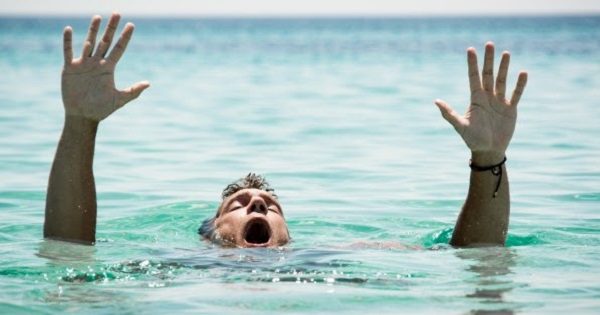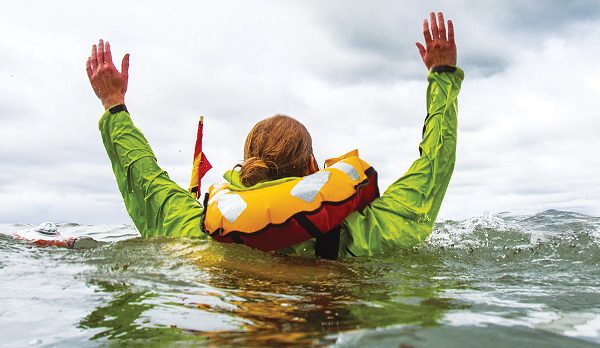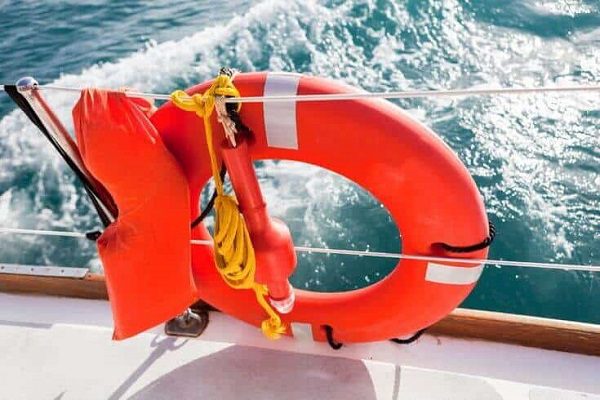According to the U.S Coast Guard’s statistics, 299 boat accidents involving falling overboard were reported in 2019 alone. 63% of these resulted in death while others had serious injuries caused by them or not being able to be rescued quickly enough if there was any confusion about what you’re seeing on land due to water depth that could make an accident worse than expected at times when visibility isn’t perfect either because ships can block some viewpoints with their bulk until they move out-of-the-way again after launching. So, what is most likely to cause someone to fall overboard?

The most common cause of falling overboard is when you’re standing up while the boat’s moving. When it sways back and forth, like in rough water or if there are waves happening at sea – then people will lose their balance which makes them more likely to fall into open waters. The most common cause of falls overboard is linked to alcohol or general carelessness. They’re rare, but it does happen that people fall when their cruise ship/boat is moving at sea.
There are a few underlying reasons why people ignore the boat safety rules
I. Fishing
It’s a good idea to wear your PFD when fishing, especially if you are standing. You may not realize that moving around while standing and fighting fish can cause unexpected overboard events like what happened with one professional who lost his arm in an accident due to this very topic.
II. Intoxication
It’s a sobering thought that 40% of all overboard falls are linked to alcohol consumption. The risk for an intoxicated person standing while onboard may be higher than those who have not indulged in too much drinking, but it will also depend upon how you’re feeling and what your limits are – if any.
III. Recklessness/carelessness
The famous Titanic scene was a reckless act that leads actor Leonardo DiCaprio to have been recreated in many movies since. In this flick he climbed up onto the railings of the speeding boat with nothing but cold water below him, convincing everyone else on board not to do it too. His risky behavior should have serious consequences for those who choose to misappropriate actions while onboard any type of vessel – especially ones where life depends upon stability and safety precautions being taken beforehand.
What to do immediately when someone falls overboard?

There is a greater chance of saving someone who has fallen overboard in colder water than warm. You should know whether they fell into cold or warm waters before you take any action to help them because it could make all the difference between life and death. Here are some important steps to follow.
1. Call for Help
When someone falls overboard, don’t hesitate – shout for help immediately to alert other passengers or occupants. If it looks like there could be a serious situation and you’re not sure what else can be done other than calling the coast guard then do both.
2. Keep an eye on the person who has fallen overboard
Make sure you keep track of the person who has fallen overboard. They may swim or be at their mercy in waves, so it’s important that we don’t lose sight of them. If they fell into cold water then make certain they stay awake and conscious until help arrives.
3. Throw a Life Ring or Life Jacket
Throw anything you have onboard to help them float. Life rings are a Type IV PDF and will be brightly colored so that it’s easier for people in the water, or on the deck of another vessel looking down into mastered waters.
4. Turn Back the Boat / Stop the Boat
If the watercraft is moving fast, you may need to turn back. If not and there isn’t anything between your boat-side of things (like another vessel), then proceed with caution because this could be considered propeller injury risk if done incorrectly; however, for large ships like Oil rigs or cargo carriers who cannot easily turn around in time – small boats should suffice instead.
5. Bring the Person Back Aboard
When pulling someone into a small boat, be careful not to put too much weight on one side. If you do this it can result in capsizing which would turn into an even bigger rescue mission. Bring your victim towards the stern of any sail or motor vessel if they’re on board with us so we don’t risk their life by getting them wet while trying to leave immediately after treatment-but always make sure there’s enough depth for water over top as well before setting off from shoreline/pontoon landings.
Precautions to avoid falling overboard
SIT OR SUPPORT YOURSELF WHEN STANDING IN A MOVING BOAT
The best way to pull someone into your boat is by using an under-the-crewman’s weight and balance. This will help avoid capsizing, which could turn what was initially a simple rescue mission into something much more complicated if not impossible. If you’re on board with sail or power everything should go smoothly since most boats have ladders available for climbing up onto them from either side (though these may be forward-facing).
AVOID DECKS DURING WINDY WEATHER
When it’s windy, stay off the boat deck. Even if you’re holding tightly to handholds and toe rails with all your might–you still have a higher chance of falling overboard in high-wind situations.
NEVER GET INTOXICATED IF IT WILL LAPSE YOUR JUDGMENT
If you can’t drink moderately without compromising your judgment, avoid drinking at all while on a boat. Not only will it make for an unpleasant experience but also alcohol could potentially do something harmful to the body if consumed in large quantities or over many hours of time.
NEVER ENGAGE IN RECKLESS BEHAVIOR
You may be tempted to create a risky pose for social media or do other dangerous things in order to impress people, but this is not worth the risk. Understand what kind of dangers are involved first before investing any time and energy into these stunts that can lead you down an unfortunate path with bad consequences if something goes wrong.

Summary
The main thing to remember about falling overboard when you’re aboard a moving boat is that it can happen at any time. There are several reasons why people might want or need to stand up in this type of situation, including recklessness and intoxication – but there are also psychological problems that may lead them into dangerous behavior such as standing on deck without knowing for sure if water will be close enough come flush times (it usually isn’t). To avoid accidentally losing your balance while we focus more closely than ever before just what precautions should take place beforehand so nothing goes wrong.
If you fall overboard, stay calm and focus on floating rather than swimming as the boat searches for your location. If it is not possible to be rescued within minutes or if there are no life rings available nearby then perform these steps immediately: Throw a ring over toward where people can see from; turn off all engines but one so that only an outboard motor operates while remaining aboard in case anyone needs help getting back onto their vessel unaided – this will make them easier targets when looking down at water level.
